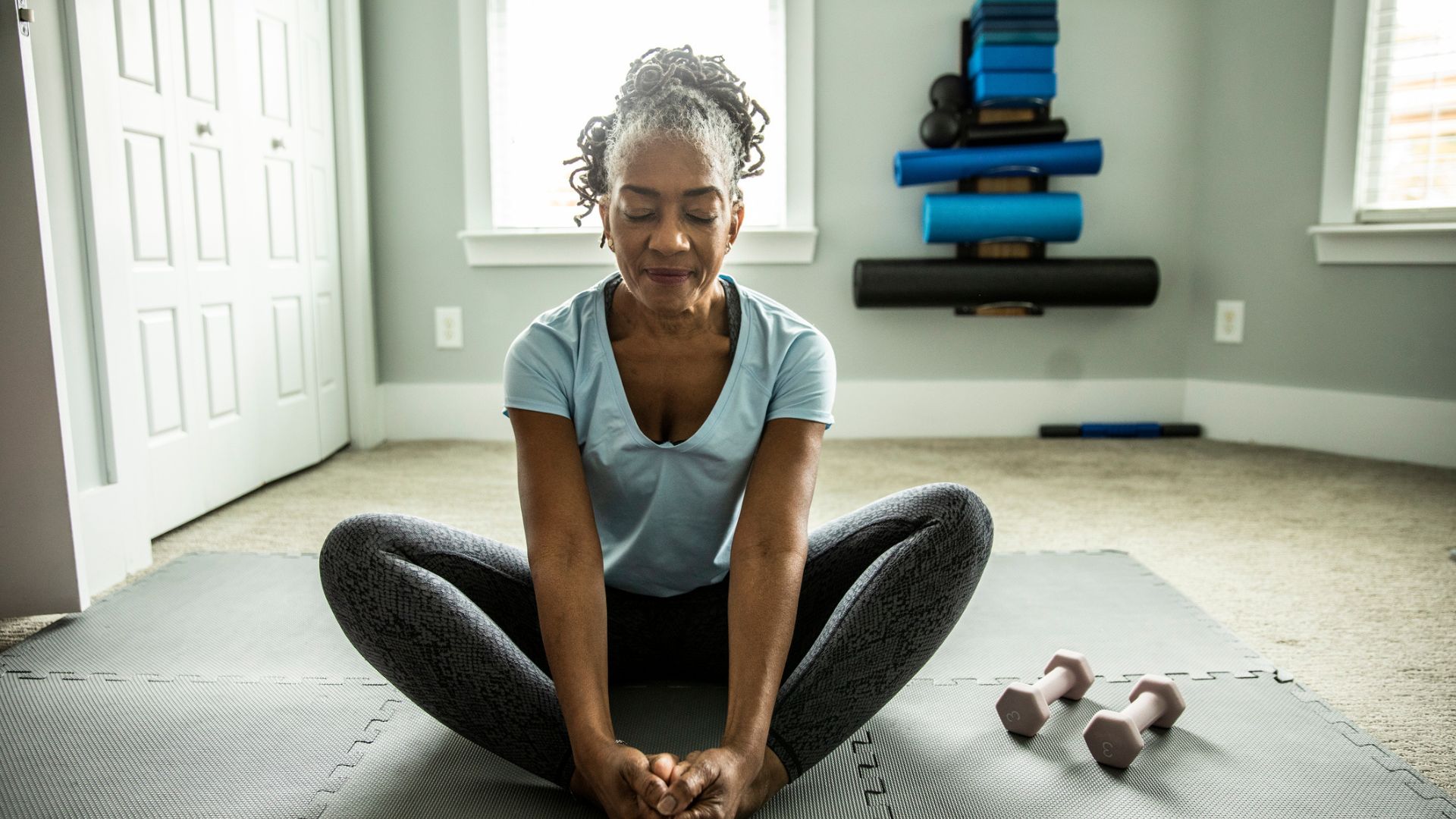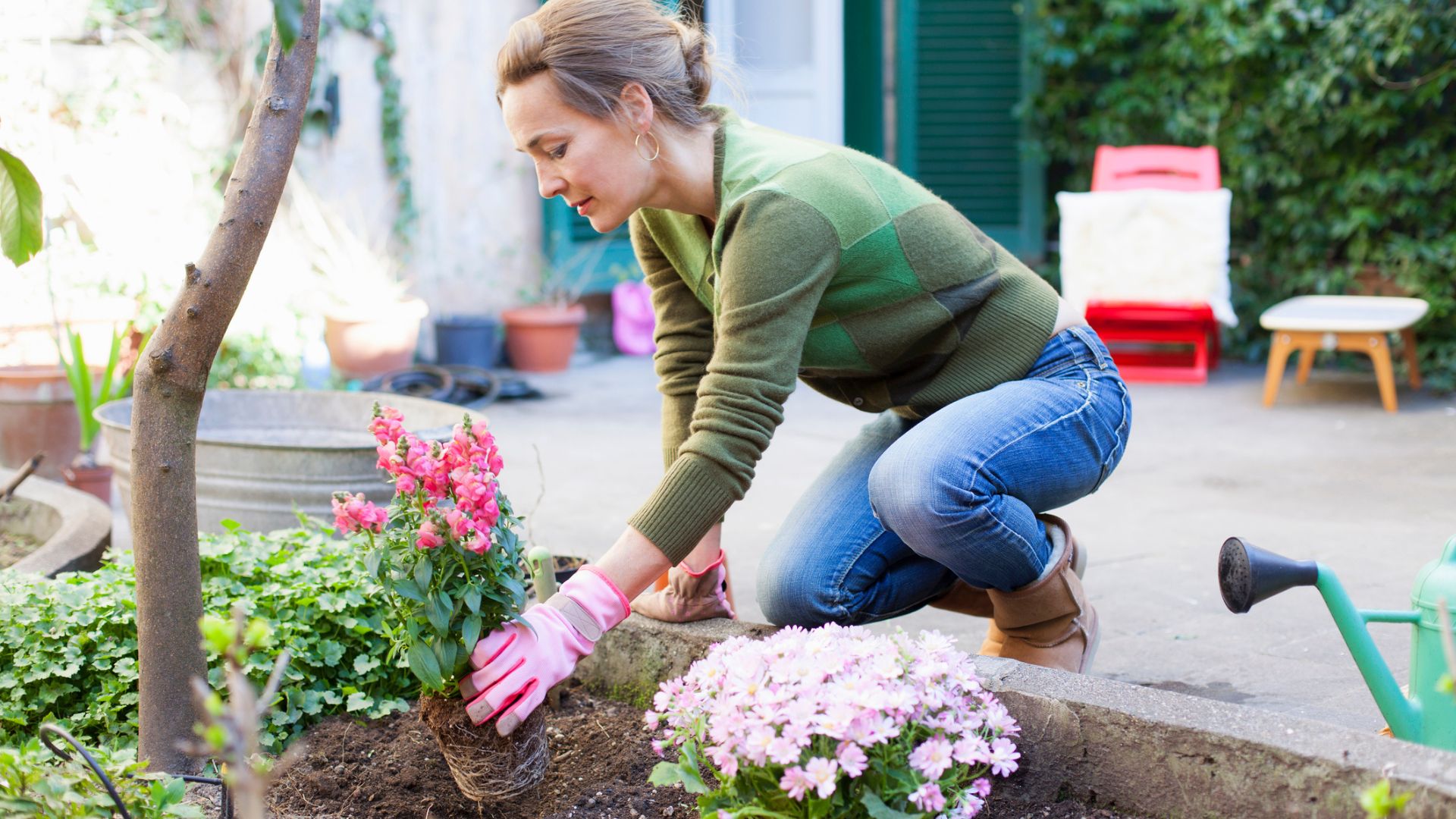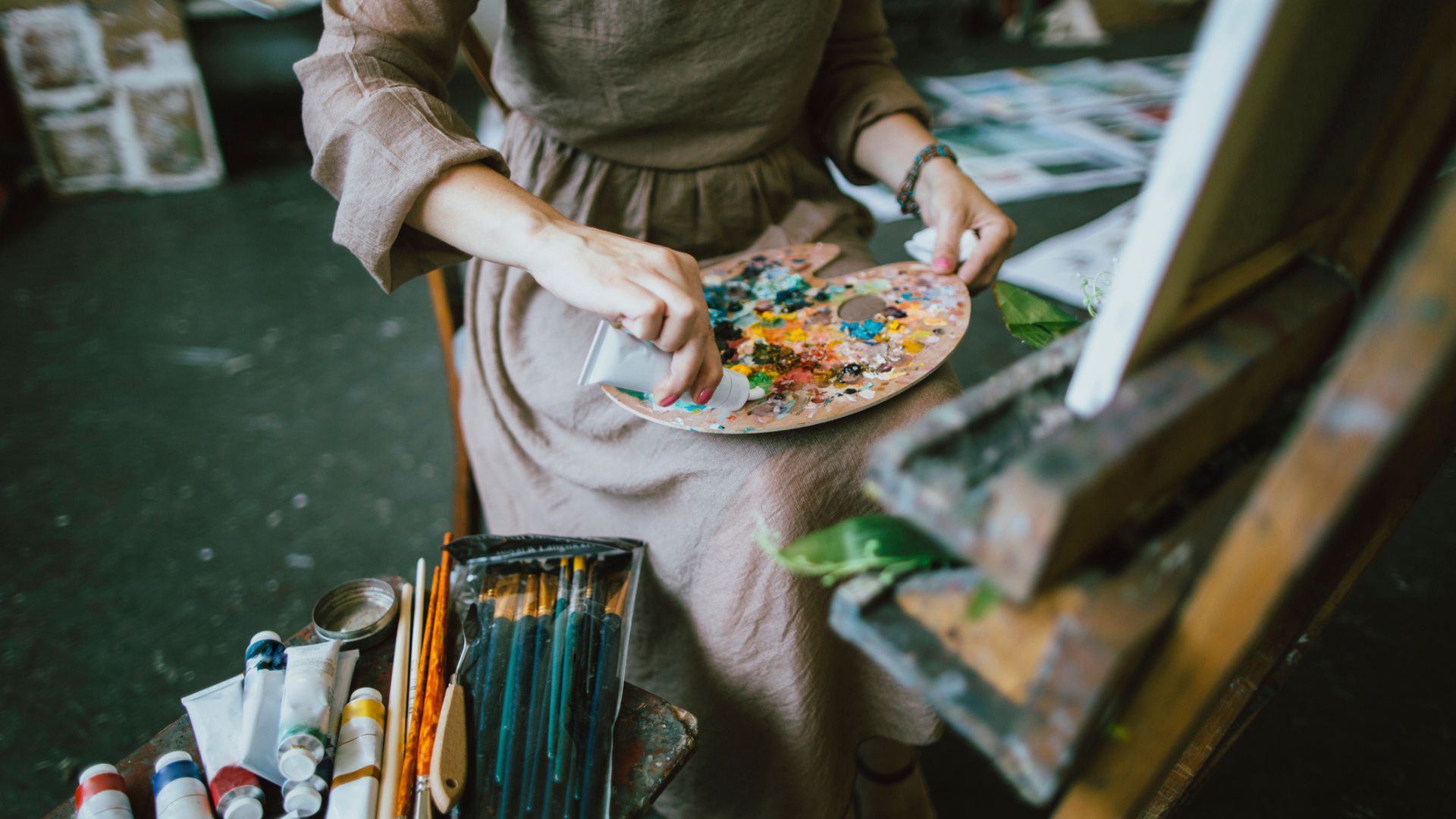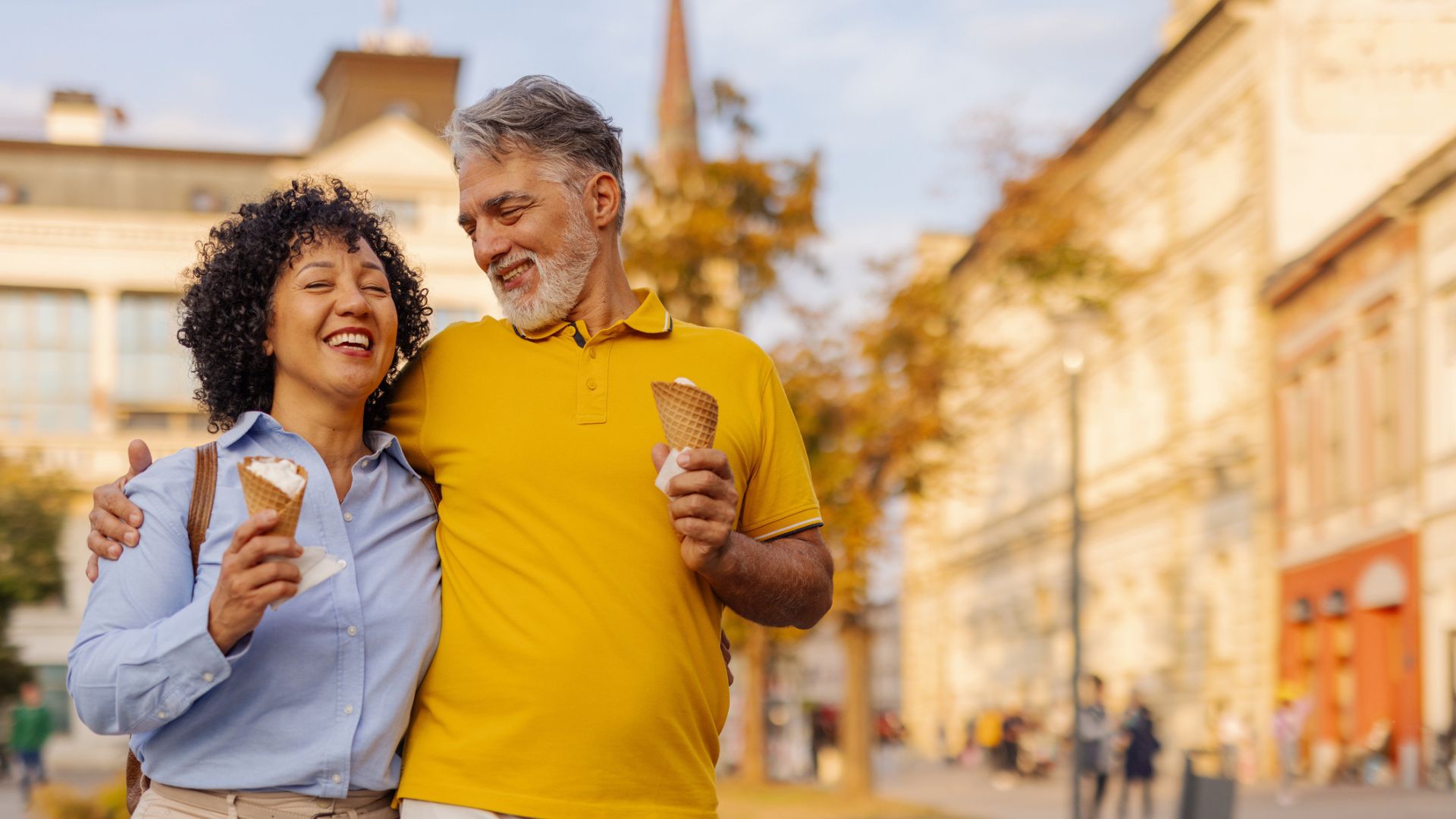The best hobbies for relaxing - 8 stress-busting activities to try now
Hobbies are important for so many things: mental health, anxiety, and pure unbridled joy. Here are the best ones for relaxing...

The best hobbies should entertain, eradicate boredom, help you develop new skills or alleviate anxiety. But they should also help you relax - which is why we've compiled a guide on the best hobbies for relaxing.
Hobbies can open up your horizons, they can ground you, but they can also help you develop new skills and even meet new people. For many of us, hobbies are innate and we naturally lean into the things we're interested in.
However, we can also get stuck in ruts and find ourselves doing the same things day in and day out - and some of best hobbies for women can come with a bit of attached pressure, as we naturally place some expectations on ourselves when we start them.
We sat down with mental health experts who broke down exactly why hobbies are good - and the best ones you can pick up if you're struggling to relax.
The best hobbies for relaxing
Firstly, identify what you find relaxing. Some people count relaxation as one of the benefits of cold water swimming, while others will find sinking into one of the best books the ultimate way to switch off. Regardless of your favorite relaxing pastime, there should be something in this list to fulfil your desires.
1. Walking
The health benefits of walking are endless. Not only can walking provide an easy cardiovascular workout which is great for your heart and lungs but it can help maintain bone density. It can also be a great mood booster and help you switch off. Walking also works to raise your self-esteem and can aid in preventing mental health problems. Walking holidays can also be extremely relaxing - as you can pick an itinerary with a pace (and setting) that works for you.
We chatted to the team at Ordnance Survey who have been encouraging the public to get outside for over a century, originally through paper maps and now their dedicated app. Nick Giles, MD of Ordnance Survey Leisure told us that people are increasingly mapping out walking routes.
Sign up for the woman&home newsletter
Sign up to our free daily email for the latest royal and entertainment news, interesting opinion, expert advice on styling and beauty trends, and no-nonsense guides to the health and wellness questions you want answered.
"We have seen a new wave of people taking up walking as a hobby with many venturing out further," explains Nick. "There they started in the cities exploring local greenspaces and footpaths (this layer of the app saw a 1,500% increase in usage during lockdowns) they are now visiting National Parks and Areas of Outstanding beauty. We are seeing record routes being recorded and followed in the app
"It is a great form of exercise for all ages and for many is the entry-level to running, cycling and other fitness programs. Research shows that there are big benefits from walking and getting outside in the fresh air. We are seeing many GPs offering a ‘green prescription’ urging people to take exercise before medication."
The best part of walking as a hobby is that it couldn't be easier to get started. You could join a walking club or meet up with a companion (be it friends or your dog). Ensure you have comfortable shoes, a good map or app and plan your route. The best walking shoes are advisable if you plan to go on long routes.
"Start local and explore from your front door," advises Nick. "Find circular routes - don't stick to straight lines where you walk the same path back. But be safe and know your limits"
2. Yoga

If you're looking for the ultimate relaxing hobby, refer to the (endless) benefits of yoga. You can turn to yoga for weight loss, to aid strength and balance and to relieve back pain but ultimately, the ancient practice is great for calming the mind.
Jinis Lai, Yoga Instructor at London’s JOHN REED Fitness explains why yoga is a relaxing hobby. "Yoga is an ancient practice, dating back thousands of years, which focuses on flexibility and breathing to improve physical and mental health. When practiced correctly, it is relaxing for both the body and mind," Jinis explains. "The physical movements are often designed to relieve physical tension - like muscle knots and improve posture, as well as releasing emotions."
It can sometimes feel like you either 'do' yoga or not. If you're not confident, join a beginners class so that you're all in the same boat - there's no point putting pressure on yourself as that would ultimately be counter-productive.
"Like with most new sports or hobbies, the best way to begin is by joining a group class. Being around others can help those new to yoga to feel comfortable," explains Jinis. "Yoga takes practice, when starting out, be mindful to not put too much pressure on yourself, and approach each session calmly and with an open mind. Outside of the class, you can practice your breathing techniques - the inhale and exhale motions - and if you have time, familiarising yourself with the most basic of yoga poses like child’s pose, downward facing dog and cobra pose might also be useful as they are used in most classes."
Head to our guide on yoga for beginners for a step-by-step guide on getting started..
3. Swimming
There are many health benefits of swimming but taking a dip - whether it be in a swimming pool or outdoors in salt water - can also work wonders for your mental health. A 2020 study by Lifestyle Medicinefound that a 10-week program of swimming had a marked effect on the participants' wellbeing and overall mood while reducing feelings of fatigue and anger.
As with all forms of exercise, swimming is an instant mood booster because it releases endorphins into our system which reduce stress and generally improve feelings of well-being. But what's especially relaxing about swimming is the fact that it's based on repetitive movements, which can be soothing and force you to focus on the task at hand, clearing your mind of other thoughts. Not to mention, being immersed in water can be very meditative, especially if you're lucky enough to live next to open water.
Learning how to swim as an adult is an incredibly enriching hobby because it combines gentle exercise with mindfulness and practicality. Let go of the widespread misinformation about how long it takes to learn to swim and the myth that the skill must be learned as a child, or never at all - it can actually be learned in a surprisingly short amount of time if you have the right coach.
Even if you already know how to swim, making time in your diary to take a dip regularly can be a great hobby, whether that's in your local pool or in the sea.
4. Gardening

Gardening is one of the most relaxing hobbies as it gets you outside in nature and is connected with feelings of accomplishment.
"Spending time gardening helps us focus on the present and the positives of the moment, rather than dwelling on past activities and issues. As we concentrate on tending to plants, it centers your mind and keeps it focused on the task at hand," explains Tim Marshall, head gardener at Raby Estates.
"The simple act of surrounding ourselves with nature and being out in the great outdoors is beneficial to mental wellbeing. Usually, a lot of time and effort is invested in gardening and the process of growing, tending to plants and seeing them flourish, allows us to utilize our nurturing instincts," he adds.
Like other relaxing hobbies, gardening forces us to really immerse ourselves in the task in hand. It also reaps rewards too - especially if you decide to start a vegetable garden.
As with all these hobbies, there's no prerequisite to starting. If you have your own garden, it's of course easier - but there are plenty of allotments or community gardens that are always looking for volunteers.
Tim advises "joining a local gardening club if you want to meet like-minded people," but emphasizes that the most important thing is just to get stuck in. "I recommend getting out in the garden as soon as possible and start weeding and tending," he adds. "You will naturally start making plans, building up experience, and growing in confidence."
Whether you're a complete novice or relatively green-fingered, these easy gardening tips should also get you on the right track.
5. Writing
We all have a book in us, or so the saying goes. Writing can be the ultimate relaxing hobby - not only is it mindful, but expressing your thoughts on paper can be extremely cathartic and calming. Writing can take many forms - whether you’re sitting on a great novel idea, or just want to take time to express your daily thoughts, consciously making time every day to write can be grounding and enjoyable.
Getting started can seem daunting but once you have an inkling of an idea, the first step is really just putting words on a page and getting started. Of course, there is more to it than that alone - check out our beginner’s tips on how to write a book - but don’t avoid writing because you don’t feel your idea is formed enough or because you don’t have a polished first draft. If you need a bit of encouragement, also think about joining a writer’s group.
Not all writing needs to lead to a novel either - or even a short story. In fact, just jotting down your thoughts every day in a journal can be extremely relaxing and can help unburden your mind.
Richard Jenkins, psychologist and Stress and Performance Management Specialist at caba recommends ‘writing to yourself,’ as a way to dispel negative thoughts and put your mind at ease.
“It’s a technique that works for a number of reasons,” he explains. “For one, when writing, you aren’t spilling out your thoughts. You have to structure them and confront the reality of what you’re saying, in order to communicate them in some kind of meaningful way. But writing things down also creates an emotional connection. There’s a degree of commitment required and therefore greater emotional engagement with what you’re saying; more so than simply speaking your thoughts aloud as they pop into your head.
“There are also very few limits to expressive writing. It can be used in a wide number of situations – owing in part to how accessible a technique it is – but is particularly helpful for those who feel as though they no longer have the answers, or as though the choice is no longer available to them. If you’ve reached the conclusion that an area of what you do is broken and are devising a plan to fix it, it can be an incredible tool.”
When you’re writing to yourself, don’t worry about grammar, syntax or even legibility. This is exclusively for you - so don’t burden yourself with any pressure.
To get started, Richard advises practicing expressive writing “when you’re at your most emotionally available. If you have two kids to get ready for school, first thing in the morning won’t work. It has to be during a time when you’re free from interruption or distraction. Free to let your mind roam and to express yourself. Free from parents, kids and even partners. You don’t have to finish writing in one sitting but do try writing continuously for 15 to 20 minutes. All I would say is that it’s important you stick to whatever goal you set yourself.”
6. Foraging
We are hunter-gatherers by nature, and there is something extremely rewarding about finding foods in the wild - and for free. Whether it's verdant wild garlic or juicy blackberries, foraging is the ultimate way to immerse yourself in nature. Being surrounded by nature is extremely grounding and having the task of finding your own food also helps focus your mind. Not to mention, learning the nutritional and medicinal nature of certain plants and foods (as well as the hazardous properties of others) is a genuinely useful skill. Similar to forest bathing, spending a day completely surrounded by - and engaging with - nature is so simple and primal, yet so powerful.
Check out our guide to foraging for food to get started
7. Painting

Engaging in a creative activity, like drawing or painting can serve as a healthy distraction and help create a self of accomplishment. It provides a creative outlet and allows you to focus on the here and now.
"Creative activities are associated with the release of ‘feel good’ hormones such as dopamine," explains Gosia, National Lead for Mental Health, Nuffield Health.
As ever, start simple and avoid creating any pressure. Buy a small acrylic or watercolor starter set and think about what you want to paint. It might be that you want to copy a photograph, of existing artwork or create a small still life scene for yourself. There are countless tutorials online and guided group classes if you want to get started. You can also buy paint by number kits on Amazon - many of these sets will deliver genuinely good pieces of art that you can hang pride of place in your home, or wrap up for a memorable 50th birthday gift.
8. Cooking
It can be easy to get stuck in a mealtime rut and reaching for quick options, but cooking dishes can be extremely relaxing. The process of opening your best cookbook, sourcing the ingredients and following a new recipe can be mindful, whether you’re looking for lunch ideas for entertaining friends or a delicious dinner for one.
Mimi Morley, Recipe Development Manager at HelloFresh explains, “Cooking is a great hobby to take up and it can help you to feel relaxed after a busy day. For example, the process of chopping and stirring can be very meditative and focusing on following a recipe can help take your mind off any worries, helping you to relax and unwind.
“You use all of your senses when cooking, with smell being the main focus, and this can create feelings of relaxation, too, as certain food aromas may remind you of a certain memory.”
The best part about cooking is that anyone can do it. If you’re a seasoned chef, you can branch into new dishes or even join a supper club. But if you’re unconfident in the kitchen, don’t be deterred: just start small.
“I would also recommend starting off with recipes you know you enjoy eating and that are simple to make, so you can build your skills up and move on to more complex recipes that you’ve maybe not tried before,” advises Mimi.
“Finally, cooking with a friend or relative is a great way to add a social element to this hobby. It gives you both a chance to spend time together, in a relaxing environment, while doing something you both enjoy.”
Why are hobbies so good for relaxing and mental health?
"Hobbies offer a slice of work-free and responsibility-free time in our schedules.," explains Gosia Bowling, National Lead for Mental Health, Nuffield Health. "This is especially needed for those who feel overwhelmed by their work and ever-growing to-do lists, to recharge their batteries by doing an activity that sparks joy.
"In fact, social prescribing is a treatment method often used by doctors. This involves asking patients with mild to moderate depression to take up a non-medical intervention (like a hobby, or connection with a community group) to enhance their mental health.
"The reason hobbies can be effective in promoting relaxation and better wellbeing is partly that they help us to achieve a state of ‘flow’. By becoming engrossed in an enjoyable activity, we give ourselves a break from worrying about the future or ruminating about the past. We have a much-needed break from thinking about the concerns of daily life like work and paying bills."
The most relaxing hobbies are often relatively solitary ones that you can control yourself. This sense of control is powerful, explains Gosia. "Hobbies can also give us a sense of control and mastery, which can act as a powerful antidote to uncertainty, or changes outside of our control. Combined with pleasure and motivation, hobbies also bring other benefits. Physical activities can increase fitness levels and team sports offer valuable opportunities for friendship, as well as emotional support that can positively impact mental health."
More stress-busting hobbies
Ultimately, different activities relax different people. But if any of the other hobbies aren't for you, then consider taking up some of the below calming hobbies.
- Candle-making: Practical and mindful, check out our guide on how to make candles to get started
- Pottery: Often cited as one of the most therapeutic hobbies, spinning clay can be both mesmerizing and engaging
- Flower pressing: Pressed flowers can make beautiful gifts or scrapbook entries
- Dancing: Join a local class or jive in your living room. You'll be surprised at the calming effects it can have - especially when you dispel any feelings of self-consciousness
- Scrapbooking: This brings together a range of other hobbies - crafts, drawing, painting, writing and more
- Photography: Stress-relieving and helps you record precious memories
- Listening to music - or even better, playing: Countless studies have proven the benefits of music on general well-being
- Knitting: The ultimate soothing hobby which you can dip in and out of
- Calligraphy: You'll be surprised at how relaxing (and functional) this skill is
- Baking: Similar to cooking, the ritual of baking can help focus your mind

Anna is an editor and journalist with over a decade of experience in digital content production, ranging from working in busy newsrooms and advertising agencies to fashion houses and luxury drinks brands. Now a freelance writer and editor, Anna covers everything lifestyle, from fashion and skincare to mental health and the best cocktails (and where to drink them).
Originally from Glasgow, Anna has lived in Berlin, Barcelona, and London, with stints in Guernsey and Athens. Her love of travel influences her work, whether she’s stocking up on the best skincare at French pharmacies, taking notes on local street style, or learning to cook regional cuisines. A certified cinephile, when she's not travelling the world, you'll find her hiding away from it at her local cinema.
-
 Unforgettable date ideas to make a great first impression or rekindle romance
Unforgettable date ideas to make a great first impression or rekindle romanceForget the same old first date formula - these unforgettable date ideas will leave them thinking about you long after you go home
By Natalie Denton Published
-
 Butter yellow might be the colour of the season, but Amal Clooney is making me want to try sunshine shades
Butter yellow might be the colour of the season, but Amal Clooney is making me want to try sunshine shadesSpark some joy by adding some statement yellow pieces to your wardrobe just in time for summer
By Matilda Stanley Published